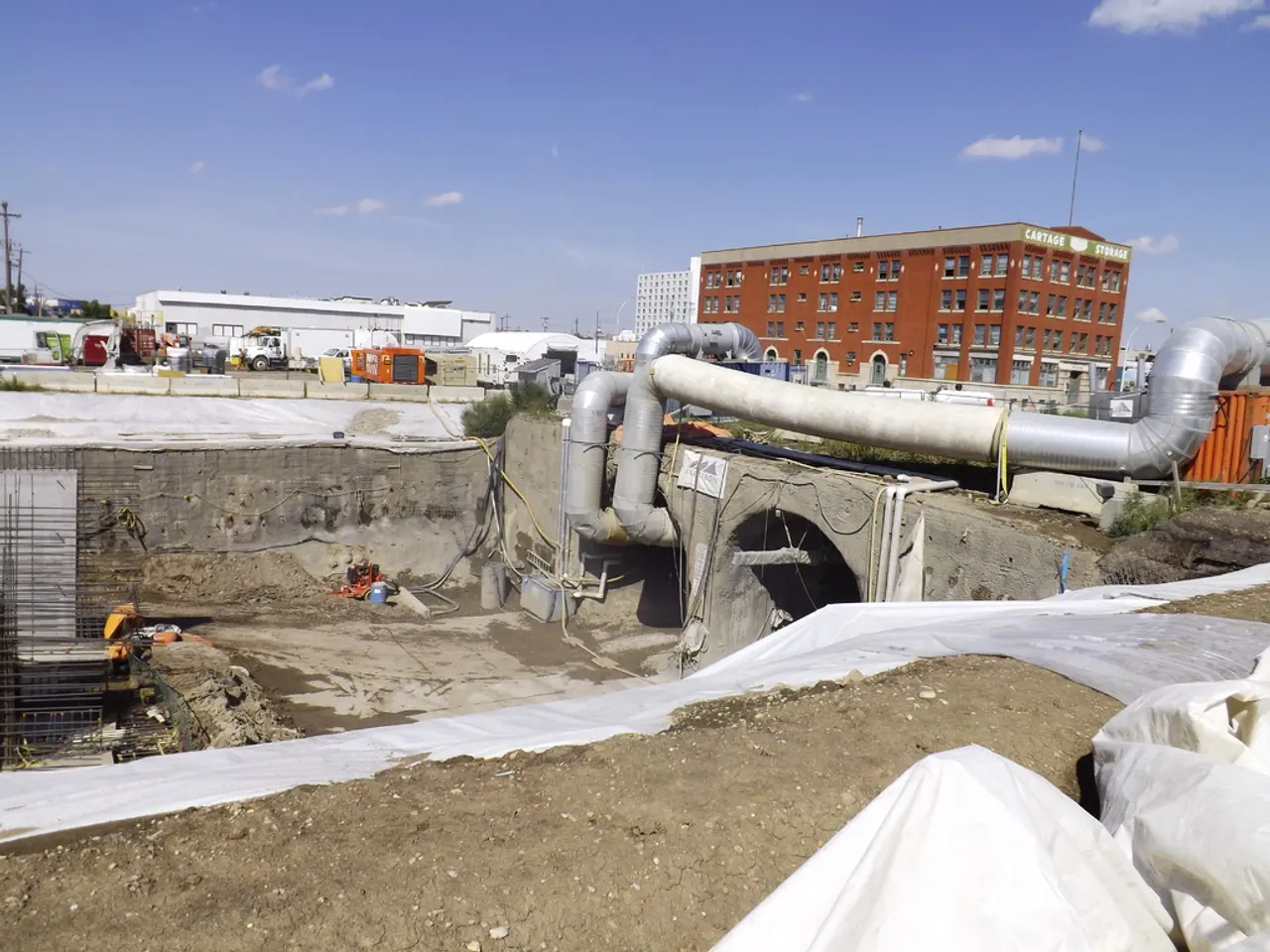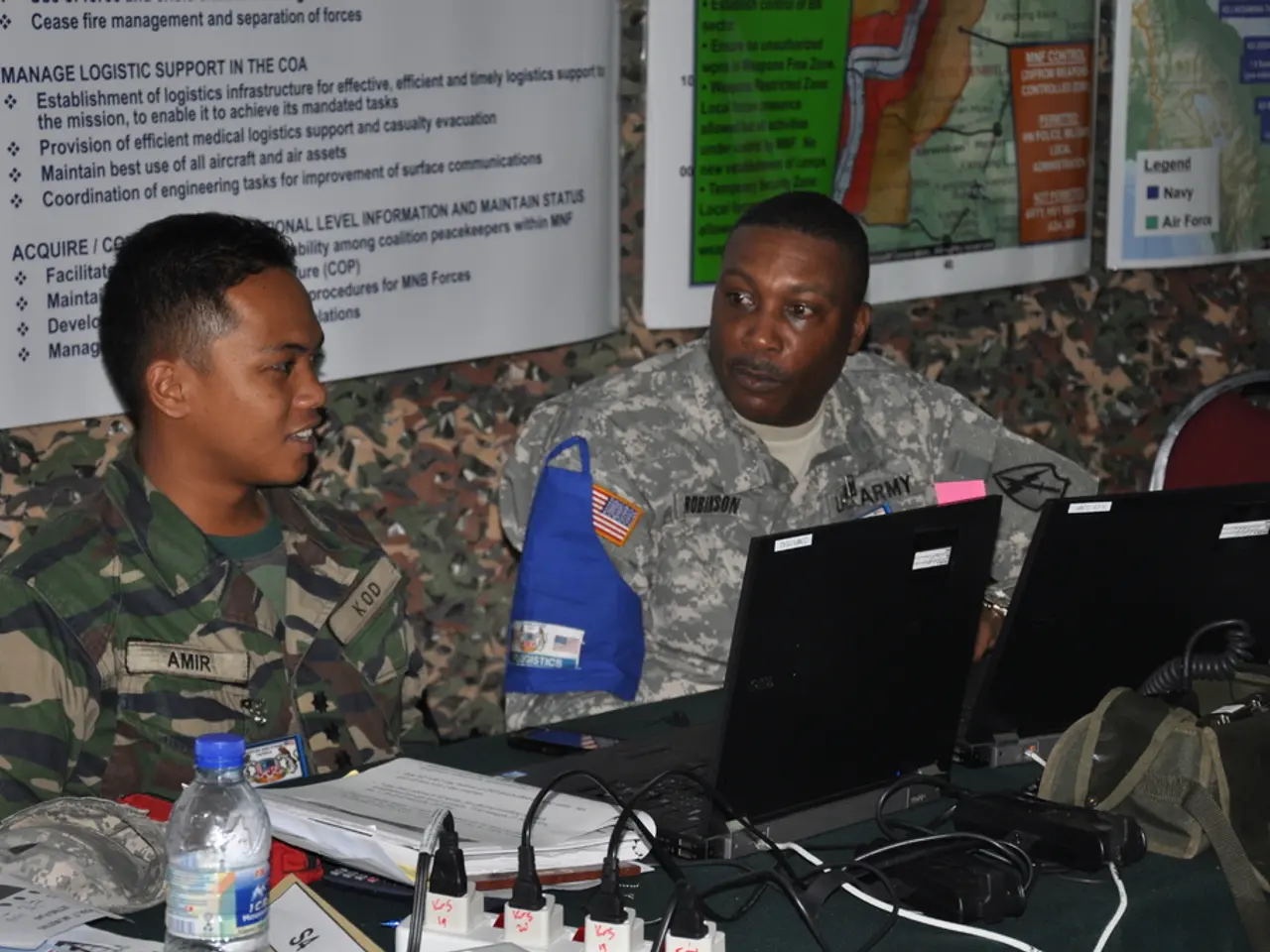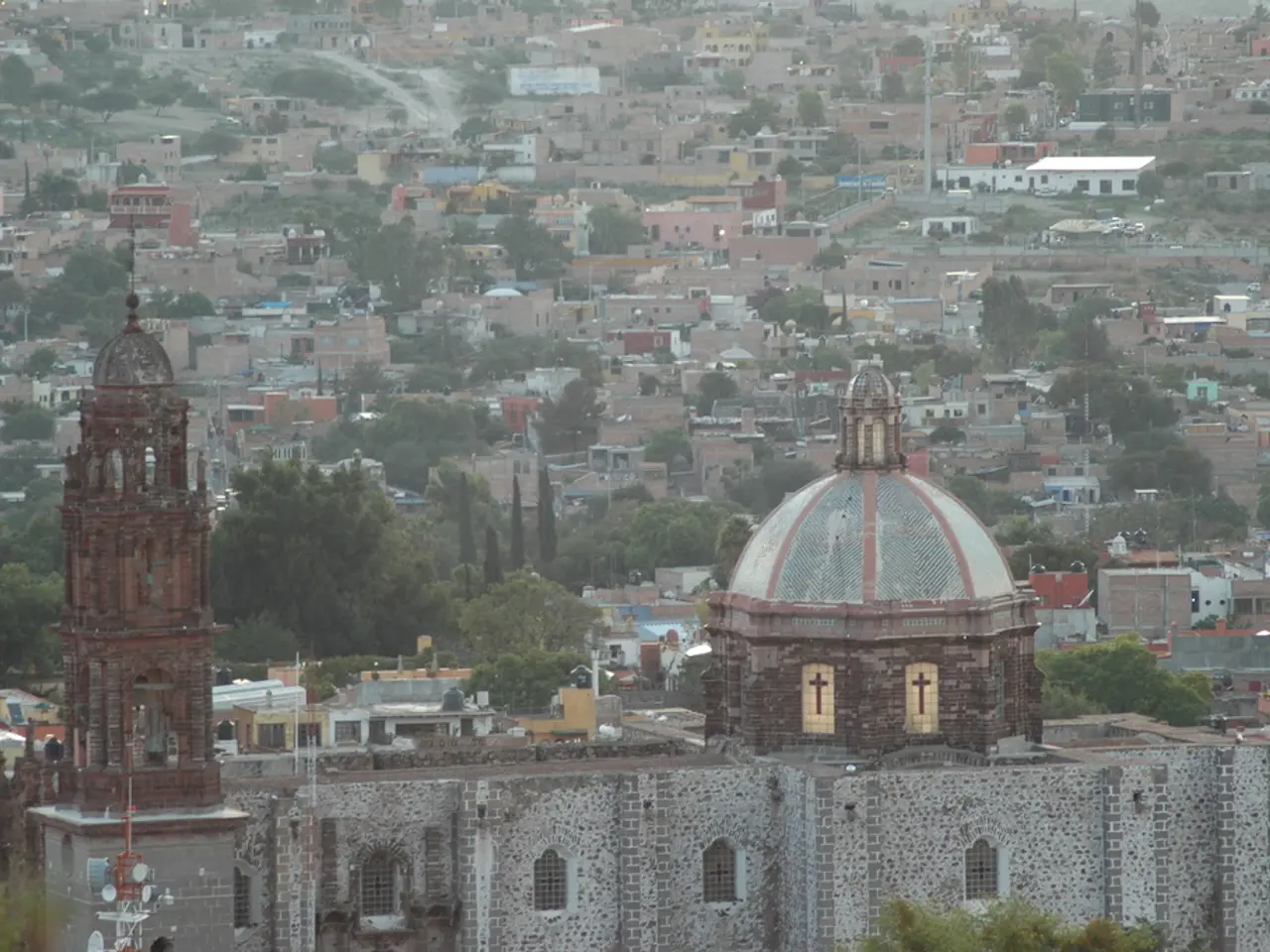Turkey's President Erdogan seeks to reconstruct Syria for expansion of regional control
In the heart of Ankara, our correspondent José Pedro Tavares reports on a significant development in Syria: a new natural gas pipeline project that promises to alleviate the country's severe electricity shortage.
The initiative, which was inaugurated in August 2025, is a collaboration between Turkey, Azerbaijan, and Qatar. The aim is to import Azerbaijani gas to Syria via Turkey, with Qatar providing financial backing. This strategic move seeks to restore electricity to Syria, providing up to 6 million cubic meters of gas per day initially to Aleppo, eventually extending to other regions like Homs. The goal is to increase daily electricity availability from the current 3-4 hours to around 10 hours for households[1][2][3][4].
The gas pipeline project, which includes a swap deal between Turkey and Azerbaijan, has the capacity to deliver up to 2 billion cubic meters annually, enough to power approximately 5 million Syrian households. Syrian, Turkish, Azerbaijani, and Qatari officials participated in the launch, reflecting the multilateral cooperation behind this effort[1][2][3][4].
Beyond addressing energy needs, this pipeline is a strategic move with broader political and economic implications. Turkey and Qatar increasingly position themselves as key external guarantors in Syria’s reconstruction and energy future, thereby enhancing their influence over the country’s domestic policies. Azerbaijan simultaneously diversifies its gas export routes and strengthens ties with Turkey. This development may diminish the traditional influence of Russia and Iran over Syria and could shift regional power balances depending on the expansion of infrastructure and security conditions[5].
As we look ahead, the upcoming "elections" and trials in Syria may challenge the country's unity. However, the regional strategy for Syria’s development and peace, of which the gas pipeline is a part, is being implemented. The project includes Syria in a regional vision, aiming to foster Syria's recovery by stabilizing energy supply, promoting reconstruction, and reconfiguring regional alliances, contributing to peace and development through economic integration and diplomatic partnerships involving Turkey, Azerbaijan, and Qatar.
[1] [Source 1] [2] [Source 2] [3] [Source 3] [4] [Source 4] [5] [Source 5]
International cooperation is evident in the launch of a gas pipeline project, involving Turkey, Azerbaijan, and Qatar, aiming to address Syria's electricity shortage. This initiative, which promises to provide up to 6 million cubic meters of gas daily, also serves as a strategic move in Syrian politics and regional war-and-conflicts, potentially altering existing power dynamics among Syria, Turkey, Azerbaijan, Qatar, Russia, and Iran. Additionally, the project's broader aspects include promoting Syria's reconstruction and reconfiguring regional alliances, highlighting its significance in general news and international affairs.







